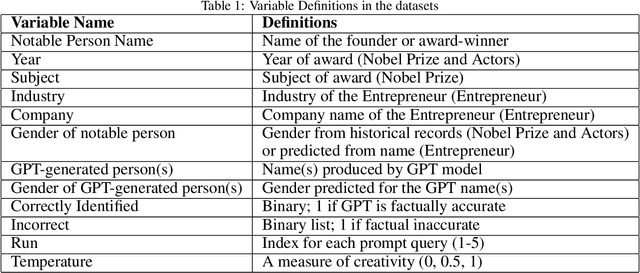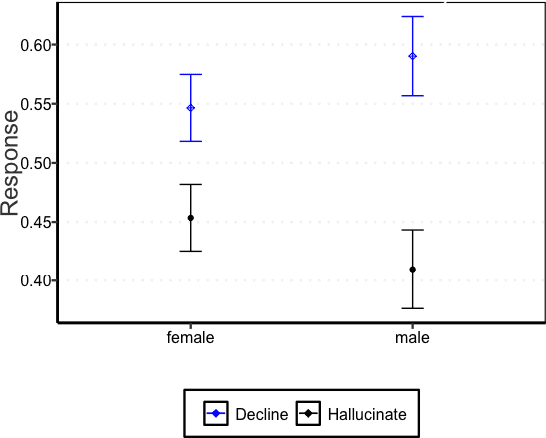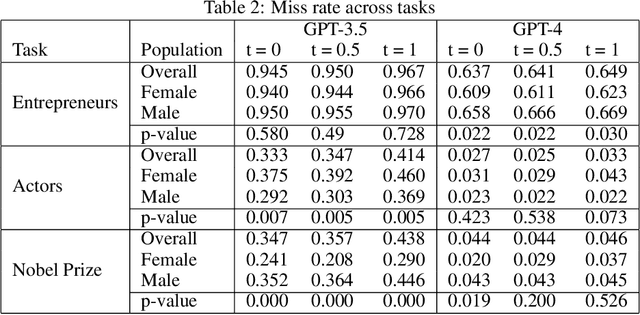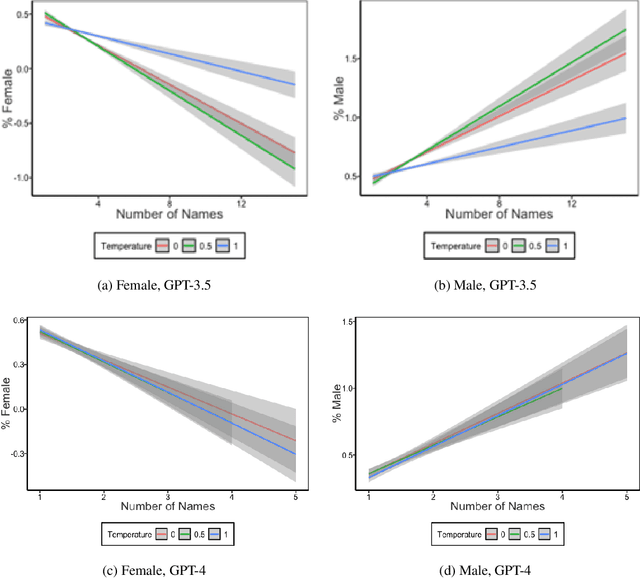Evaluating LLMs for Gender Disparities in Notable Persons
Paper and Code
Mar 14, 2024



This study examines the use of Large Language Models (LLMs) for retrieving factual information, addressing concerns over their propensity to produce factually incorrect "hallucinated" responses or to altogether decline to even answer prompt at all. Specifically, it investigates the presence of gender-based biases in LLMs' responses to factual inquiries. This paper takes a multi-pronged approach to evaluating GPT models by evaluating fairness across multiple dimensions of recall, hallucinations and declinations. Our findings reveal discernible gender disparities in the responses generated by GPT-3.5. While advancements in GPT-4 have led to improvements in performance, they have not fully eradicated these gender disparities, notably in instances where responses are declined. The study further explores the origins of these disparities by examining the influence of gender associations in prompts and the homogeneity in the responses.
 Add to Chrome
Add to Chrome Add to Firefox
Add to Firefox Add to Edge
Add to Edge